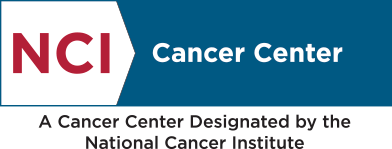Screening
Call or complete our questionnaire to see if you meet the criteria for a breast cancer screening.
Call us at
305-689-CARE (2273)
Or
The purpose of breast cancer screening is to find cancer at its earliest stages, before it’s big enough to feel as a lump. Screening can find cancer when it’s more easily treated, before it grows larger or spreads to other areas of the body.
The American Cancer Society recommends these cancer screening guidelines for women at average risk of breast cancer:
- Starting at age 40 – Begin screening with a mammogram every year.
Who is at high risk for breast cancer?
If you have a personal or family history of breast cancer, a genetic mutation known to cause breast cancer such as BRCA, or previous chest radiation therapy at a young age, you’re considered high risk. Your doctor may recommend screening at a younger age or more frequently (or both) or suggest an additional screening method.
We create a screening plan based on your age, personal and family health history, lifestyle, and risk factors.
Gene mutations
Gene mutations (changes) passed down from parents cause less than 10% of breast cancer cases. The most common cause is a mutation in the BRCA1 or BRCA2 gene. Other gene mutations can cause inherited breast cancer such as ATM, TP53, CHEK2, PTEN, and CDH1, STK11, PALB2, and others.
According to the National Cancer Institute, 55% to 72% of women who inherit a BRCA1 mutation and 45% to 69% of women who inherit a BRCA2 mutation will get breast cancer by age 70 or older. The BRCA mutation also increases the risk of other cancers, including ovarian cancer in women and prostate cancer in men.
Anyone can have a BRCA mutation, but it’s more common in those with Ashkenazi Jewish ancestry than in any other racial or ethnic group in the U.S. Breast cancer caused by BRCA mutations is also more common in Bahamian women than the general population.
We offer genetic counseling to help you understand your risk and options – a more aggressive screening plan, surgery to remove breast tissue (risk-reducing surgery), or medicines to lower your risk of cancer (chemoprevention).
What are the risk factors for breast cancer?
Risk factors can increase your chances of developing breast cancer. You can control some risk factors – such as lifestyle habits – but there are others you can’t, like family history or genetic makeup.
Protective factors
- Maintaing a healthy weight
- Limiting alcohol consumption
- Breastfeeding
- Regular exercise
- Receiving hormone therapy after menopause
- Eliminating tobacco use
Breast cancer risk factors you can’t control include:
- Sex. Although men can get breast cancer, it’s more common in women.
- Age. Your risk increases as you get older. Most breast cancers are found in women 55 and older.
- Benign breast conditions. Some noncancerous breast conditions can increase the risk of breast cancer, such as lobular carcinoma in situ (LCIS), atypical ductal hyperplasia (ADH), and atypical lobular hyperplasia (ALH).
- Inherited gene mutations. About 5% to 10% of cancer cases are hereditary. BRCA gene mutations are the most common cause.
- Personal history of breast cancer. Women who've had breast cancer, particularly younger women, have a slightly elevated risk of developing cancer in either breast.
- Family history of breast cancer. The risk of breast cancer is nearly doubled in women with a mother, sister, or daughter (first-degree relatives) – two first-degree relatives with cancer triples a woman’s risk. Having a father or brother with breast cancer also increases your risk.
- Chest radiation therapy. Women who had radiation therapy for another cancer as a teen or young adult (when breasts are developing) have a significantly higher risk of breast cancer.
- Breast density. Having dense breast tissue can increase a woman’s risk compared with women with average breast density. It’s also harder for mammograms to detect breast cancer in dense breast tissue.
- Race and ethnicity. White women are at greater risk for breast cancer than Black women. But in women younger than 45, breast cancer is more common in Black women, and black women of any age are more likely to die from breast cancer. One in 40 Ashkenazi Jewish women have a founder mutation in the BRCA1 and BRCA2 genes, which increases their risk.
- Early menstruation and late menopause. Women who start menstruating before age 11 or go through menopause after 55 have a higher risk of breast cancer because they’re exposed to estrogen and progesterone for a longer period.
